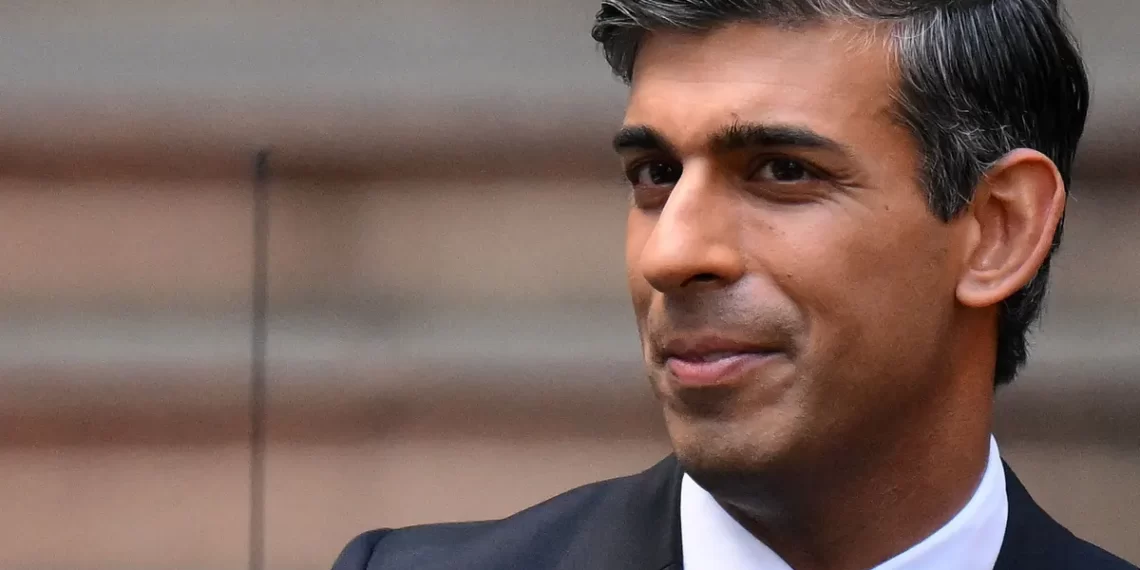According to a recent poll, the support of suburban women aged over 60, who previously voted for the Conservative Party in 2019, is expected to play a crucial role for Rishi Sunak in the upcoming general elections.
The survey, conducted by the think tank More In Common and published on Friday, February 23, reveals that undecided older-than-average females formed part of the voter coalition that secured Boris Johnson a majority in 2019.
However, this coalition has now splintered, presenting a challenge for the Conservatives to bolster their support across the country.
The polling indicates that while some voting groups have directly shifted allegiance from the Conservatives to Labour, others have chosen Reform UK as their preferred option.
Notably, a larger proportion remains undecided, constituting approximately 6 percent of voters.
Within this undecided group, a majority are female, older than the average voter, and are likely to reside in towns or suburbs, as highlighted by Luke Tryl, the UK director of More In Common.
This demographic will be pivotal in shaping the political landscape in the upcoming election.
Mr Tryl said, “Whilst winning back this group won’t be enough to keep the Conservatives in power… they will determine the size of any likely Labour victory, from a hung parliament to a landslide.”
A recent poll conducted by More in Common in the last week of January among 3,000 British adults indicated that the upcoming election will likely focus on policy more so than personality.
Neither of the two main party leaders appears to be a significant draw for voters.

“As this in-depth analysis suggests, the parties’ fortunes are likely to be shaped by a series of factors that sit underneath headline voting intention. That includes the dominance of the cost of living, the rising salience of crime, what the unusually large number of undecided female voters who voted Tory in 2019, ultimately decide to do and to what extent third-party voters for the Greens, Liberal Democrats, or Reform UK decide to vote tactically.”
Luke Tryl
The Shift Towards Issue-Based Elections in the UK
The cost of living remains a pressing concern for voters across the board, topping the list of worries despite a decline in inflation over the past year.
Meanwhile, issues surrounding crime and the state of the National Health Service (NHS) are particularly resonant among swing voters, according to recent findings.
Luke Tryl, from More In Common, cautioned that the Conservative Party is unlikely to sway swing voters with promises of tax cuts and by emphasizing “culture war” topics.
He noted that those who shifted allegiance to Labour are more inclined towards advocating for increased investment in public services rather than tax reductions.
Additionally, subjects such as gender identity and withdrawal from the European Convention on Human Rights are of limited appeal to the broader electorate.
While a reduction in council tax garnered significant support, with 43 percent of undecided former Conservative voters in favor, similar enthusiasm wasn’t seen for income tax cuts, with only 29 percent backing the idea.
Tryl also indicated that it’s improbable for the Conservatives to attract substantial numbers of Reform UK supporters. Only a quarter of them expressed potential interest in backing the government if Reform were to step aside.
Moreover, many “anti-system” voters suggested they would either abstain from voting or choose another protest party if Richard Tice’s group wasn’t on the ballot.
However, the analysis doesn’t paint a universally positive picture for Labour either, as pointed out by Mr. Tryl.
Despite the party’s commitment to invest £28 billion annually in green projects, this proposal ranked as the second most popular, with the top spot going to the pledge to eliminate tax breaks for non-domiciled individuals.
He said: “Labour risks reinforcing the charge they are more of the same by having ditched one of their most popular policies with their likely voters.”
Polling data indicates that while 25 percent of those transitioning from the Conservative Party to Labour expressed unwavering support for Sir Keir Starmer’s party, approximately 20 percent voiced concerns about Labour’s ability to effectively address the ongoing cost of living crisis.
READ ALSO: Minister Declines Support for Speaker Amid Gaza Vote Dispute





















